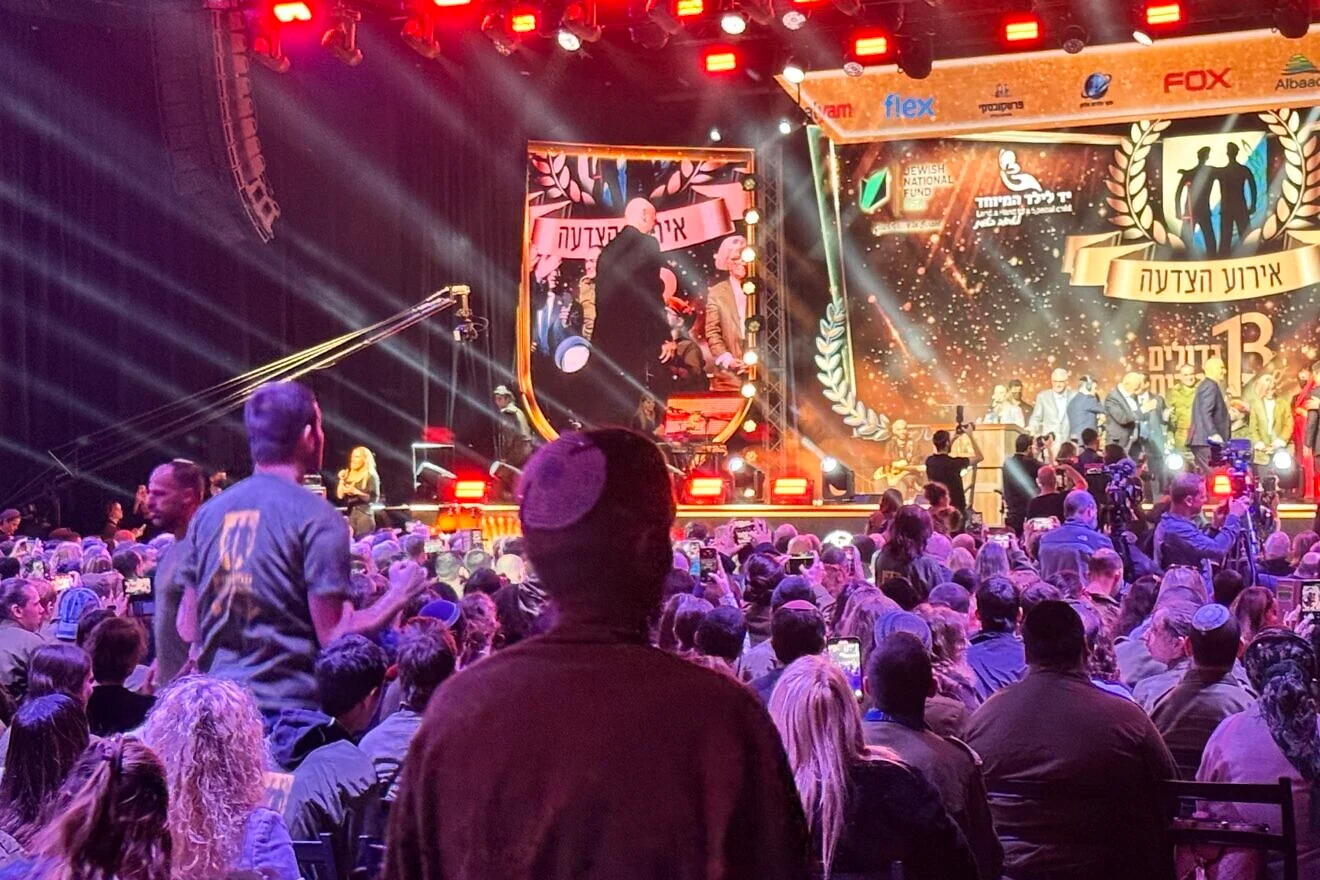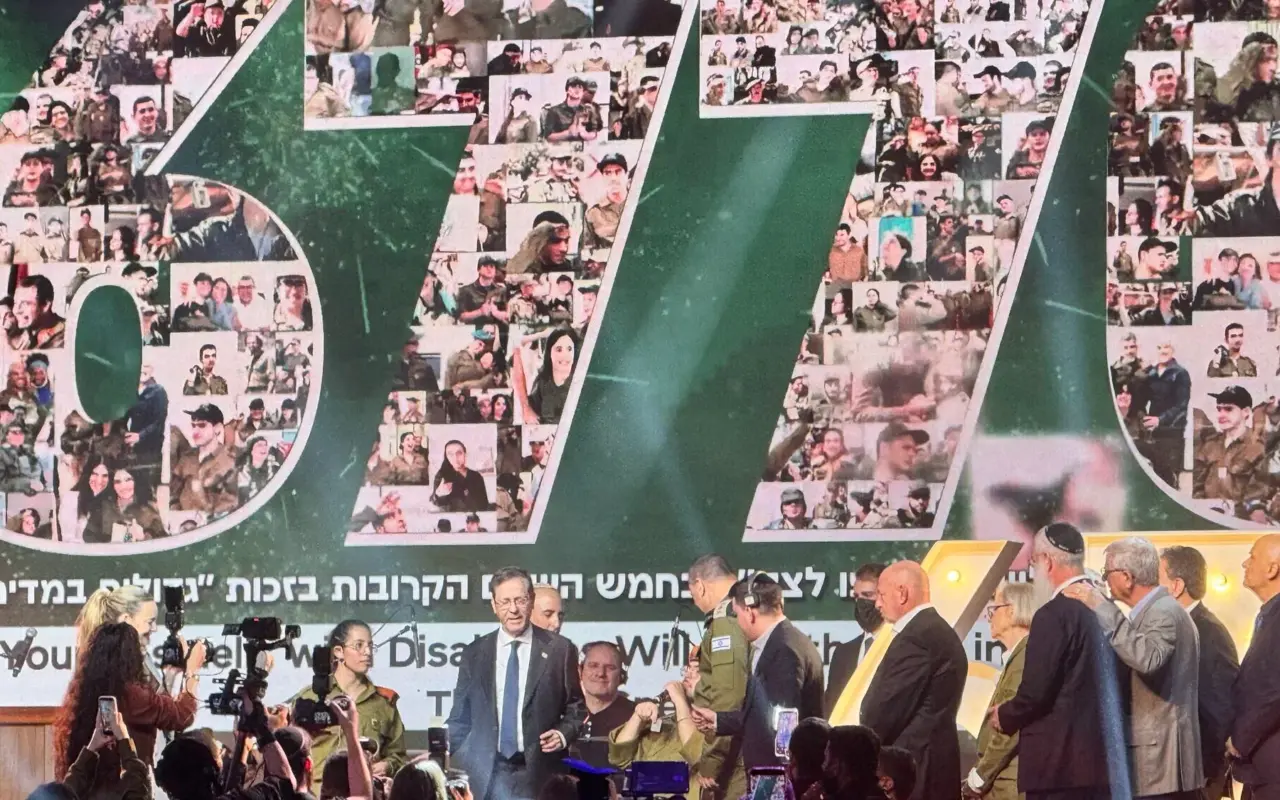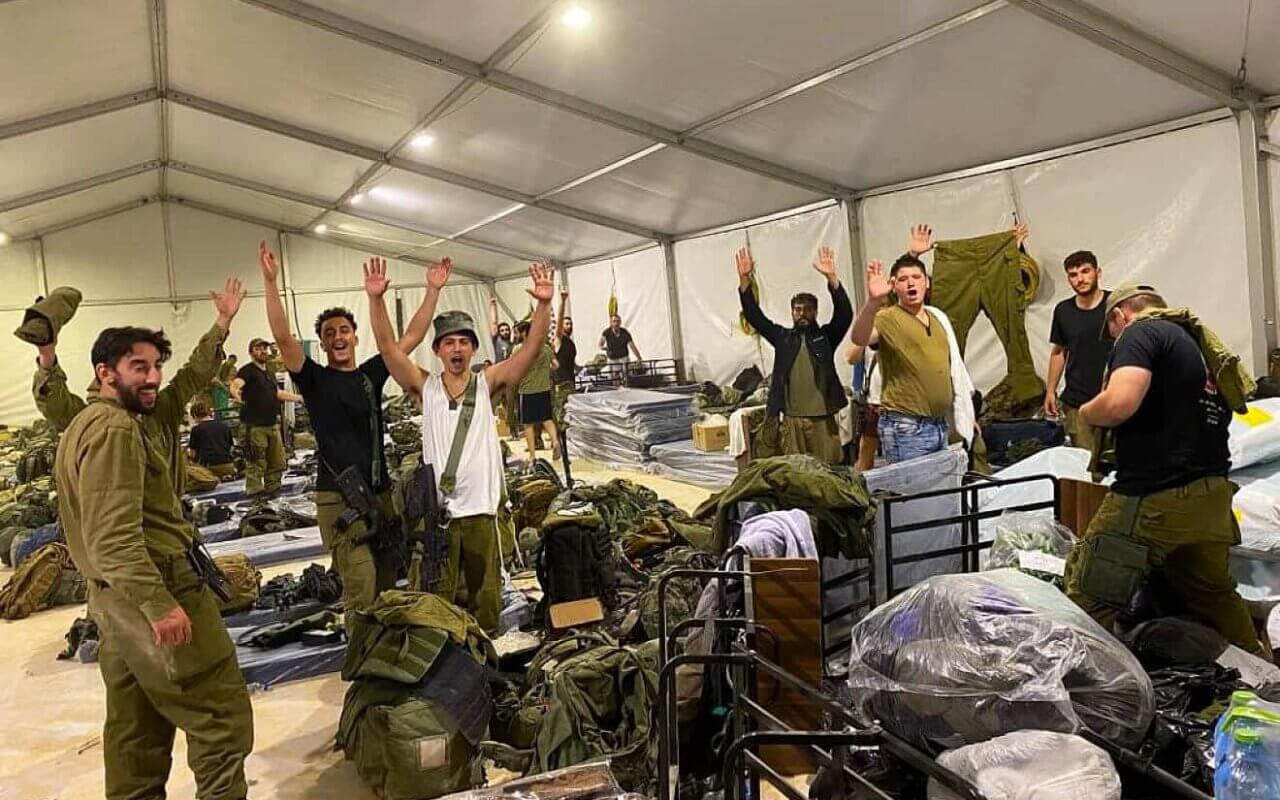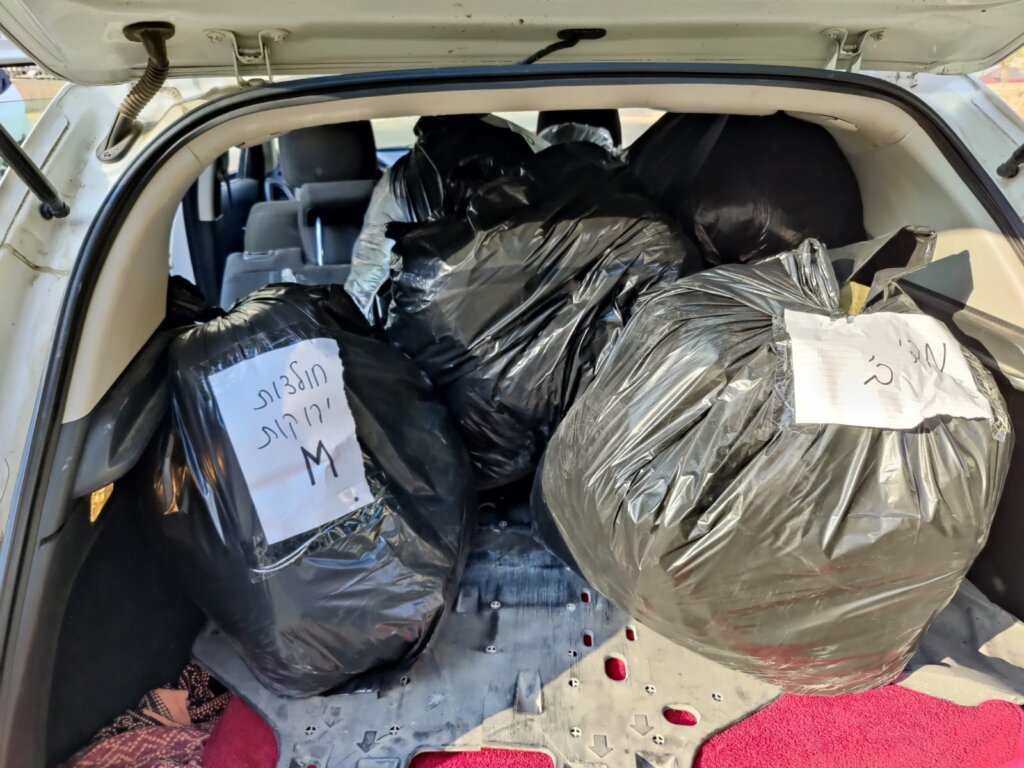Original Article Published On The Jerusalem Post
Yuval Wagner was an IDF pilot who became paralyzed after a helicopter crash. Now he runs the NGO Access Israel with the goal of making the Jewish state more accessible to people with disabilities.
A group of 29 adults with disabilities stood near a Cobra helicopter at Palmahim Airbase in Israel, mesmerized as Yuval Wagner recounted that fateful day in 1987 when the helicopter he was piloting abruptly crashed and left him paralyzed and his commander dead.
Wagner also explained how his new life as a paralyzed man with a desire to embrace life, travel and make his beloved country accessible for all, led to the creation of Access Israel, the Israeli NGO he founded nearly 25 years ago.
The former pilot, used to navigating Israel from the controls of a helicopter, now gets around with the help of a sophisticated electric wheelchair he operates with a joystick. He moves so quickly that it is hard to keep up with him. The community members from Chapel Haven in New Haven, Connecticut, Wagner’s guests at Palmahim, had to work hard to follow the fast-moving Wagner as he showed them the ins and outs of the base.
The group first toured the hangar housing Black Hawk helicopters and listened to mechanic “H” explain how engines are repaired and replaced. When the group later met young pilot “D,” they had a chance to board a Black Hawk and experience what it feels like for 18 people to cram into such a small space usually used to transport crew members, including pilots, mechanics and medics on rescue missions.
Wagner led the group from the Black Hawk hangar to the Cobra helicopter replica, which serves as a memorial to the events of March 18, 1987. Wagner began by giving the group a sense of what it means to be a pilot serving in the Israel Defense Forces and of the centrality of one’s aircraft.
Wagner holds the Access Israel logo. (credit: YUVAL WAGNER)
“It was my dream to fly Israel’s most advanced helicopter,” he told the group. “The time you become a pilot, you learn that you live not only with your wife or girlfriend, but with your aircraft too.”
The group gathered around Wagner in front of the helicopter as he recounted the story of the helicopter’s unexpected crash.
“We were eight helicopters – four pairs of two. It was a beautiful day, and we took off from Palmahim on a training mission. We flew to the Dead Sea and from there made a turn north. A little before Beit She’an, the helicopter began shaking wildly, and suddenly we crashed in the fields.
“We fell from 400 meters [1,300 feet]. Lt.-Col. Zion Bar was killed immediately. He had a wife and three kids. I could not feel or see anything. There was mud in my eyes and I didn’t know if I was blind. I broke my neck and was taken by rescue helicopter to Hadassah Hospital in Jerusalem and was between life and death. I eventually went to a rehabilitation hospital.”
The large group, standing around Wagner on this hot day didn’t make a sound as he recounted the impact of the crash on his life.
“This is the second that life changes for you and your family. You have options. Where do you take your life from here? I chose to make the most of the situation and become stronger, to take a second that is terrible and make a life that is better, to make the most out of our lives, to enable people with disabilities and their families to live and do. It is tough. You can’t hide it.”
Wagner then recounted the issues he faced day to day in the aftermath of becoming paralyzed.
The sudden challenges of becoming disabled
“The first challenges are medical. Then, how do I live with myself as a disabled person? How do I live my life with the thoughts, reactions and stigmas of others?” He then began to tell the story of how and why he created Access Israel.
“I didn’t know about accessibility,” though he acknowledged having some experience, as he spent his life living with a disabled IDF father who also used a wheelchair.
“The next challenge was how to go out of the house. I got married and had three kids and wanted to go to a hotel in the Galilee.”
Yuval begins to tell the well-known story of how Access Israel got its start.
Wagner and family prepared for their first family vacation by taking steps to ensure the accommodations were fully accessible. They were in touch with the guesthouse about elevator size, door sizes of the room and bathroom and more. They were reassured it was accessible. Wagner stops the story mid-sentence and promises to tell the whole story later that evening when the group will gather for dinner in his home.
CHAPEL HAVEN community member Jonah Sabol found Yuval’s talk at Palmahim to be the highlight of a 10-day Israel trip.
“That was an inspiring story. I can’t imagine what he must have been feeling,” he said.
Later that evening, at a poolside dinner at Wagner’s fully accessible Hod Hasharon home, Access Israel’s CEO Michal Rimon welcomed the group and told the longer version of the story of Wagner founding Access Israel.
“Twenty four years ago, Yuval went on vacation, and the door of the bathroom was too narrow to get his wheelchair in,” Rimon explained. “He had to make a choice between disappointing his family and going home or staying. The staff told him to go get a cup of coffee and worked to make the door frame bigger. When Yuval went home, he wrote a letter to Israel’s then-president Ezer Weizman.”
Wagner explained to the president and former pilot what had happened and expressed disappointment about Israel’s lack of accessibility.
“A day later, I got a call back from the President’s Office. They said the President read the letter and wants to speak to me,” Wagner said. “After talking, he gave me the responsibility for starting an organization that would make Israel accessible in every way possible. And he told me to come back in six months to the President’s House with a report on the status of the organization.”
Rimon, who has heard and recounted this moving story dozens of times, succinctly shared Weizman’s message to Wagner with the group.
“He said, ‘I apologize on behalf of Israel. Do something – establish an NGO and stop kvetching. And you have a six-month time table for the launch!” Access Israel was launched on the lawns of the President’s Residence in June 1999.
Wagner returned to the army to complete his service – now focusing on coding over flying – and worked with friends and colleagues to come up with a business plan to show the president. They began with work on a website to identify accessible and non-accessible places in Israel. They have continued in three areas: awareness, consulting to organizations, and legislation.
While Access Israel’s vision has always been to create a world where people with disabilities can live their lives with respect, equality and independence in all areas of life (including work, education, culture, travel and leisure, commerce, health and transportation,) the scope of their work has expanded over the years.
They work to raise awareness among decision-makers and engage the Knesset to initiate new legislation and regulations regarding accessibility. The organization also manages projects to implement accessibility.
A Feel Accessibility 2023 family event took place May 12 to raise awareness around accessibility, disabilities, sports, and people with disabilities in general. The educational and experiential event included a flotilla of sailboats and yachts, and helicopter and aircraft flights over the beaches of Tel Aviv, Jaffa and Herzliya.
In Israel, Access Israel has hosted international conferences on inclusion and accessibility and has rolled out the Purple Vest Israel initiative, which provides a toolkit for implementing preparations to evacuate and assist individuals with disabilities in emergency situations.
This initiative has expanded beyond Israel and has been implemented effectively at the Ukraine-Poland border. Since February 2022, participants have helped rescue 4,000 people with disabilities and the elderly, while providing support to 10,000 people by providing essential equipment and medications.
Online initiatives with an international focus include webinars on topics around disabilities, access and inclusion. Their May 24 webinar on Accessible Tourism, their 13th such event, attracted more than 200 people from 80 countries.
Despite Wagner’s extremely busy schedule, he finds time to keep up his connection to the air force and flying – and to connections with his comrades. In December 2021, Wagner had the opportunity to return to a helicopter – this time as a passenger – along with Noam Gershony, a fighter pilot and Israeli wheelchair tennis star who was also paralyzed in a helicopter crash.
Each Remembrance Day, Wagner joins the family of Zion Bar, his deceased comrade, on the beach for brunch. Bar left behind his wife, Naomi, and three children – Yaeli, Assaf, and Michali, all in their 20s now.
“He loved the beach,” Wagner said. Each year on the anniversary of Bar’s death, Wagner visits the cemetery in Tel Aviv where Bar is buried.
Wagner’s professional colleagues are impressed with his drive and dedication. James Lassner, executive director of Accessibility Accelerator, an Access Israel partner, reported, “One who has the opportunity to meet Yuval gets to see the focused and dedicated commander of Access Israel that he is. As his collaborative partner, I get to see the same and I am blessed to see deeper into his golden and very caring heart. This mission we are on with him is to make a focused effort each day better than the day before for people with disabilities and the elderly.”
Catherine Sullivan-DeCarlo, vice president of admissions and marketing at Chapel Haven Schleifer Center, Inc., who got to know Wagner on her group’s recent trip to Israel, added, “I was deeply impressed with Yuval’s story and his determination to make his country more accessible. He turned a personal tragedy into a lifetime of advocacy and it is evident throughout Israel. We saw many historic sites that are being made accessible for people across the globe. I also was impressed that Yuval is still active with the Israel Air Force. Visiting the airbase and his home and experiencing the depth of his commitment was a deeply moving part of the trip for me.”
While Wagner runs a complex and very ambitious organization, it is all pretty simple.
Wagner noted, “I came to a moment of acknowledgment that my life story, my fortune and luck to stay alive after the accident is for a reason – to make Israel fully accessible and inclusive for people with disabilities and their families and to share knowledge and best practices to the world.” ❖






